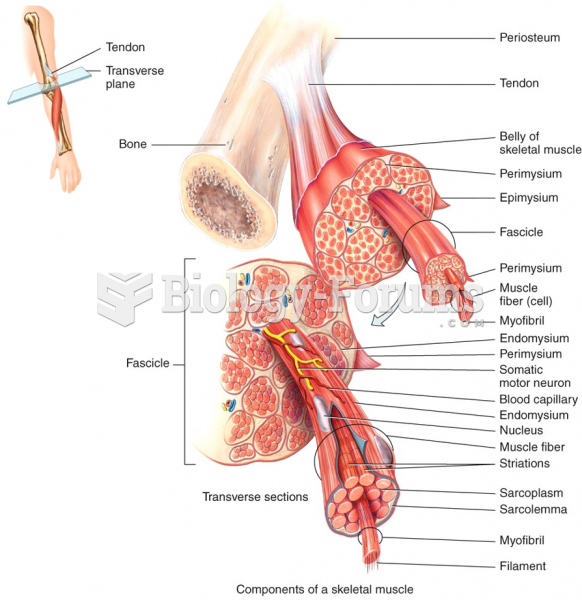|
|
|
The ratio of hydrogen atoms to oxygen in water (H2O) is 2:1.
An identified risk factor for osteoporosis is the intake of excessive amounts of vitamin A. Dietary intake of approximately double the recommended daily amount of vitamin A, by women, has been shown to reduce bone mineral density and increase the chances for hip fractures compared with women who consumed the recommended daily amount (or less) of vitamin A.
Approximately 70% of expectant mothers report experiencing some symptoms of morning sickness during the first trimester of pregnancy.
Most childhood vaccines are 90–99% effective in preventing disease. Side effects are rarely serious.
More than 2,500 barbiturates have been synthesized. At the height of their popularity, about 50 were marketed for human use.







